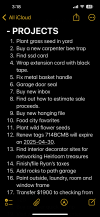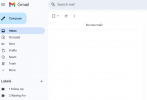Hi everyone,
I’ve been implementing GTD for about a month now, and while it initially helped me stay on top of tasks, I’ve hit a few roadblocks as my workload increased. I’d love to hear how more experienced practitioners handle these challenges.
I’ve been implementing GTD for about a month now, and while it initially helped me stay on top of tasks, I’ve hit a few roadblocks as my workload increased. I’d love to hear how more experienced practitioners handle these challenges.
What Worked Well Initially:
- The "capture everything" mindset reduced mental clutter.
- Processing my inbox daily gave me a sense of control.
- The "next actions" list helped me well.
Current Struggles:
- Inbox Overload – My collection rate now exceeds my processing capacity, leading to backlog stress.
- Energy Drain – When fatigued, I default to passive recovery (e.g., short videos) instead of meaningful rest or task completion.
- Task Resistance – New inputs (especially from peers/partners) trigger annoyance, partly because recording them feels like adding to an already overwhelming system.
- Urgent vs. GTD – Some unplanned urgent tasks bypass my system entirely, leaving me reactive.
Specific Questions:
- For those who’ve faced "collect > process" imbalance: How did you recalibrate?
- Any tips for maintaining motivation during low-energy phases?
- How do you handle externally assigned tasks without resentment?
- Do you integrate urgent "fire drills" into GTD, or keep them separate?
Last edited:



